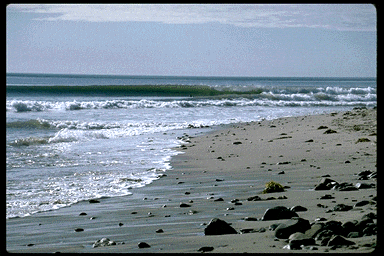
Some perspectives:
- Dunaliella is an organism that evolved much earlier than multicellular creatures (like us). Learning about the origins of cell death programmes would give us insight into how they evolved, and help us to understand how they are regulated and how we might cure diseases.
- Cell death work in phytoplankton will help us to understand what controls the succesion of different species that we see in the oceans. This has implications for understanding how global change is going to affect marine ecosystems. As well, since some blooms of phytoplankton are toxic (e.g. “red tides”), it may help in prediction and in understanding what happens to these cells as the bloom declines.
- The cycling of organic matter (especially carbon) in the oceans is a critical term in the global carbon budget. In order to predict the effects of atmospheric rise in carbon dioxide and determine how this will affect human beings, we need to know more about the fate of phytoplankton.